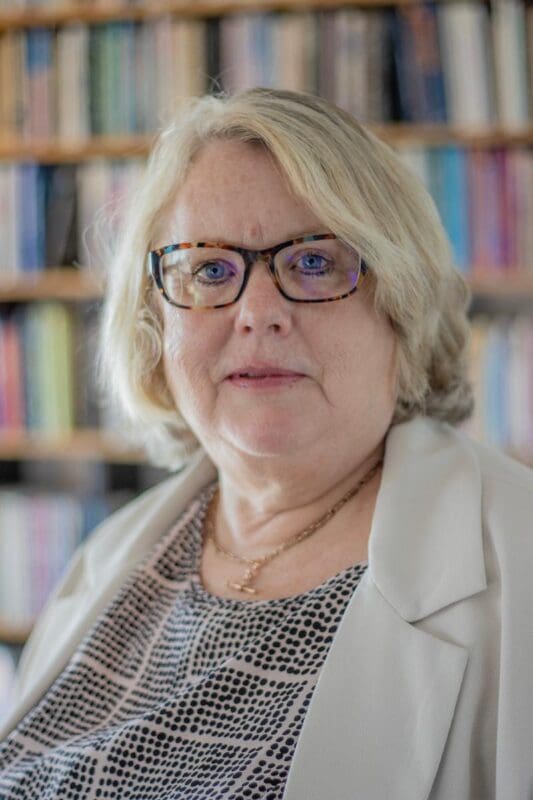
This message originally appeared in the Academy’s August 2025 newsletter.
This is a difficult time in the Australian higher education sector, with fluctuations in domestic and international student enrolments among the factors resulting in some major restructures within Australian universities. While no disciplines are completely immune, it is clear that Humanities, Arts and Social Science staff, units and centres continue to be particularly impacted in several institutions across the country.
These changes, and arising job losses, have enormous implications for the academic and professional staff who are directly affected, along with their colleagues, collaborators, students and families. To all those impacted — Fellows of the Academy and others— I extend my personal support and also do so on behalf of the Academy.
More generally, ongoing shifts and downsizing in the structure of the Social Sciences research and teaching workforce raise serious concerns about the future of Australia’s national knowledge capabilities. Of particular concern are the reduced opportunities for early-career researchers in the university sector and maintaining the pipeline of highly trained PhD students in the Social Sciences.
For instance, how will Australia be able to ‘support healthy and thriving communities’ or’ ensure a secure and resilient nation’ — two of the five National Science and Research Priorities— if there are fewer psychologists, health economists, sociologists, public policy scholars and historians employed in Australia’s universities with capacity to understand and advise decision-makers on the complex social, economic and cultural forces at play?
Australia’s research capacity to solve key social and environmental challenges — and most importantly to ensure that all Australians, including First Nations communities, can live healthy, equitable and productive lives— depends on the input from the Social Sciences. Our research is core to the cross-disciplinary approach that must guide how we tackle and find solutions for the big and small issues that determine how Australians, now and in future generations, will prosper.
Yet public recognition of the social value of the Social Sciences and the Humanities has declined in Australia and elsewhere globally in recent years. The focus of the Academy on furthering the integrity and capacity of the Social Sciences is an exercise in rebuilding public and government trust in the value and importance of the work we do in all aspects of the daily experiences of Australians and in governmental policies and practices.
To that end, the Academy has commenced a major update of its landmark 2021 State of the Social Sciences report for release in early 2026. The updated report will delve deeply into the strengths, gaps and opportunities for the Social Sciences at disciplinary level, including student enrolments and staffing numbers. It will consider how much teaching, research and translational capacity Australia has in the Social Sciences, how this has changed over time, and what skills, resources, infrastructure and policy settings might conceivably be required to address the major social challenges today and in the medium term.
The report will provide a strong base of evidence with which the Academy can speak authoritatively and from a position of trust with our institutional and government leaders about the Social Science teaching and research capacity that is required to secure Australia’s future.
Of course, there are other ways the Academy acts on its mission to champion the Social Sciences. I have recently signed an Open Letter to the Prime Minister requesting the repeal of the Job-Ready Graduates (JRG) Package that has had such an inequitable impact on students of the Humanities and Social Sciences in the BA and other degrees. This letter was initiated by the Australian Historical Association and its President, Professor Michelle Arrow, FASSA and an online petition has been created which Fellows may wish to sign.
Ongoing activities by the Academy to advocate for the value of the Social Sciences includes working with the panel leading the Strategic Examination of Research and Development (SERD), with Fellows advising on the range of issues under consideration to expand and enhance Australia’s research and innovation system.
Upcoming meetings this month include one with the newly-established Australian Tertiary Education Commission (ATEC) to discuss the critical role of Social Science education and research in universities. The Academy’s Board will be hearing from ARC CEO Professor Üte Roessner FAA about how changes to its funding schemes may impact and create opportunities for Social Sciences researchers. The Policy Committee is meeting with Australian Chief Scientist Professor Tony Haymet FTSE to explore the intersections of the Social Sciences with their agencies and offices.
The Academy continues to collaborate with likeminded institutions to convene conversations about nationally important issues. Last week in Melbourne, the Academy partnered with the Melbourne Institute of Applied Economic and Social Research and CEDA to convene a forum where journalist Alan Kohler moderated a panel of expert speakers who shared evidence and ideas to boost Australia’s productivity.
And the following day in Canberra, the Academy brought together over 50 researchers and senior officials from a variety of Government departments and agencies to discuss ways in which integrated public data could be more effectively utilised to inform evidence-based policy.
There is much to celebrate in the outstanding achievements too of our Fellows and the Social Sciences more generally, and Social Sciences Week in Dates is growing in the scope of its activities. LINK The Academy’s long-standing grant programs for researchers in Australia and our region, and our the new Seriously Social schools program, are just some of the ways in which our Academy is seeking to advance the standing of the Social Sciences. We are privileged to do so with the support of our Fellows and each of our friends and collaborators.
Professor Kate Darian-Smith FASSA
President
